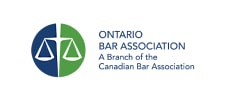Procedural Fairness and Postponements at the Immigration Appeal Division

There are a number of challenges in the immigration system that could affect appeal cases. What would you do if your spousal sponsorship application is refused and you file an appeal with the IAD but you can’t find a lawyer to assist you fast enough? Sometimes applicants do not have adequate time to find a qualified immigration lawyer Canada to assist them in preparing for hearing.
We know that lawyers also need adequate time to prepare for hearing so if an applicant approaches one last minute, they might refuse to take on the case. This leaves the applicant with no option but to request for a postponement that allows the lawyer to be better prepared for hearing. When the IAD refuses this request, it means that the application could not be reopened. The applicant was forced to go to hearing themselves and this contributed to the appeal being denied.
What is procedural fairness?
Procedural fairness requires that the processing of immigration applications should be done by some level of fairness. For instance, if a request for postponement is refused by the IAD without even taking time to consider all the factors set out in the IAD Rules, this could be considered as an error of procedural fairness. The Immigration Appeal Division needs to consider factors such as when the postponement request was made if the applicant had adequate time to prepare for hearing and all the efforts he/she made in order to be well prepared for the case.
Some cases are quite complex especially if the decision would involve the applicant being removed from Canada. Hence adequate time is required even for an immigration appeals lawyer Canada to prepare for such a hearing. If the member of IAD refuses an application for postponement even without considering if there were any previous delays in the case, it is considered unfair.
The decision to refuse to reopen the application was considered as a breach of the applicant’s right to natural justice and a fair hearing. This is because the member of IAD did not consider all the factors that forced the applicant to appear before the IAD without counsel. The member was required to ask the applicant a number of questions in order to demonstrate that the mandatory factors set out in Rule 48 were considered. Failure to do this meant that the applicant’s rights were infringed especially given that the decision would result in a removal order being issued.
Should you request for postponement?
After this case, board members of the IAD are now more careful when reviewing postponement requests from applicants who are facing a removal order. If your spousal sponsorship application was rejected and you need to ask for more time in order to prepare for hearing, work with an immigration appeals lawyer to help you understand your options. There are so many implications involved in immigration appeal cases and a lawyer can help you to get the best outcome. Consult a qualified lawyer as soon as you receive a decision.



















